Search for non-native species information
All of our resources in one place
Search results
You searched for "biosecurity"
Useful links
external link) Invasive Species in Ireland (external link) Global Invasive Species Programme (GISP) (external link) IUCN Invasive Species Specialist Group (external link) United States Department of Agriculture, National Invasive Species Information Centre (external link) NOBANIS - European Network on Invasive Alien Species (external link) Biosecurity
The NNSS
to be used by anyone that wants to use them) Non-native species sounds and video clips Case studies relating to invasive species Comments on all of our work, particularly the Non-native Species Information Portal, Non-native Species Risk Assessments and ID sheets Examples of education and awareness materials Good practice management and biosecurity
Check Clean Dry
Since 2017 a group of water companies have been contributing to a project to improve aquatic biosecurity, including funding the Check Clean Dry campaign. Find out more about the Aquatic Biosecurity Partnership .
Annual workshop
APHA) A vision for the future (Trevor Renals, Environment Agency) Non-native species Inspectorate update (Emma Brand, APHA) Aquatic Water Quality award (Neil Green, Bristol Zoo) CRISEP project update (Charles Hughes, Canal & River Trust) Floating Pennywort management (Jake Crone, British Canoeing and Ian Doyle, Angling Trust) Group marine biosecurity
Tips for retailers to Be Plant Wise
Training materials The following training is available for retailers: Invasive Non-native Species & Biosecurity – OATA. City & Guilds accredited. Free online training in what invasive non-native species are, identification of key species, and recording. Thank you for helping us to look after the environment.
Guernsey
Biosecurity The Department of Agriculture, Countryside and Land Management Services are building on the success of the Asian hornet strategy and are currently developing an Invasive Non-Native Species (INNS) Action Plan to be implemented in 2022/23.
Inspectorate
Invasive non-native species (INNS) are a large and growing biosecurity threat to Great Britain, driven by increasing trade and movement of people. There are already 2,000 non-native species (NNS) established in GB, about 200 of which are invasive, and around 12 new NNS establish in GB each year.
Materials and resources
Funding for Be Plant Wise All Be Plant Wise materials developed and printed by the NNSS are funded by a group of nine water companies through the Aquatic Biosecurity Partnership .
Case study: Peak Forest Canal
Any biosecurity measures put in place A mobile CCD station was put in place for the October event. A jet washing area was used to check and clean the canoes and equipment used during the event.
IPBES report
“The UK is committed to tackling invasive species at home and overseas, demonstrated through the launch of the GB Invasive Non-Native Species and UK Biosecurity Strategies earlier this year, and alongside initiatives in the Overseas Territories.
